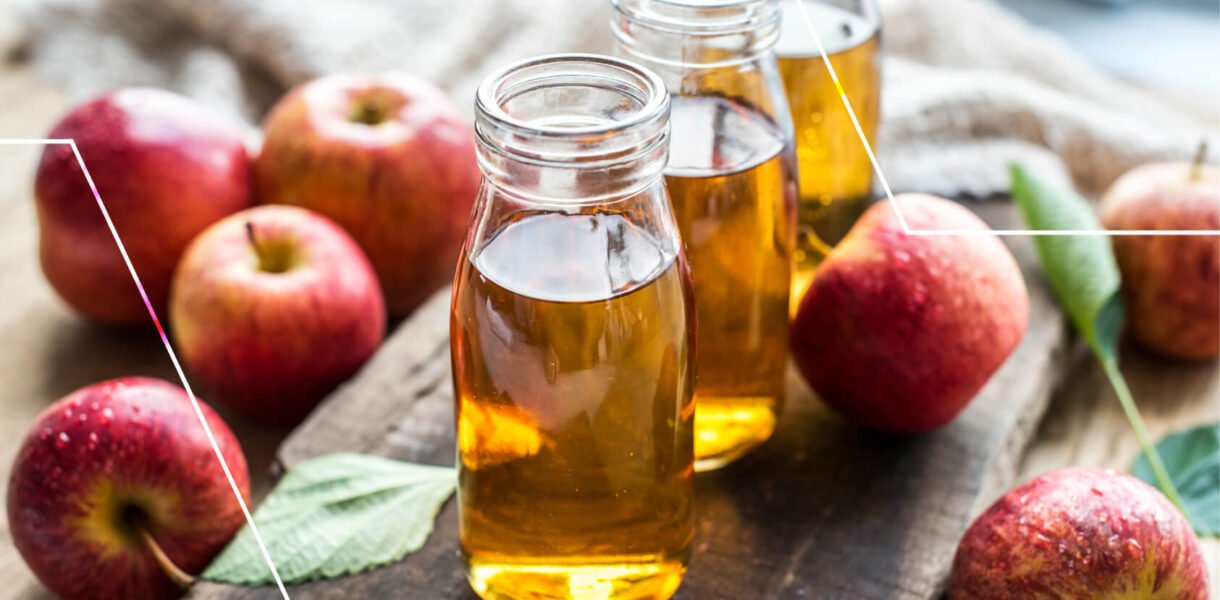Table of Contents
Apple cider vinegar has gained popularity in health and wellness circles, but many wonder about its impact on fasting. This article delves into the fascinating world of apple cider vinegar, exploring its composition, effects on fasting, and potential health benefits.
From its minimal carbohydrate content to its ability to stabilize blood sugar levels, we’ll uncover why this tangy elixir might be a valuable addition to your fasting routine. We’ll also compare different types of vinegar and share some historical insights, including a personal anecdote about fermentation. Whether you’re a fasting enthusiast or simply curious about the benefits of apple cider vinegar, this comprehensive guide will provide you with the information you need to make informed decisions about incorporating it into your diet.
Will apple cider vinegar break your fast?
So here’s a question will apple cider vinegar actually break your fast because it does have carbohydrate okay one tablespoon of apple cider vinegar has point zero 1 grams of carbohydrates so it’s not going to really break too fast more than a nanosecond
Summary:
- Apple cider vinegar contains only 0.01 grams of carbohydrates per tablespoon
- It will not significantly break a fast
Are other types of vinegar fine?

but if you’re consuming the salt make vinegar 3 grams of carbs rice vinegar 6 grams of carbs so these two comparatively have a lot more than outside of vinegar but if you’re using just a tiny bit on your salad dressing I think it’s going to be okay
Summary:
- Salt make vinegar: 3 grams of carbs
- Rice vinegar: 6 grams of carbs
- Small amounts in salad dressing should be fine
What is vinegar?
but what is vinegar vinegar is acetic acid there’s some other things in there but it’s mainly a scenic acid now where does this come from it comes from acetic acid bacteria so this bacteria ferments the carbs

the Apple carbohydrates so it’s breaking down the carbohydrates with certain enzymes and eventually turning it into vinegar so fermentation is basically the breakdown of carbs sugar or alcohol by bacteria
The Latin derivation of the word vinegar means sour wine and the reason why they add sulfites to the wine is to prevent this bacteria from turning the alcohol into vinegar because sulfides suppress this bacteria
now when I was 11 years old in the backyard we had this crabapple tree and so I took this bushel basket of crab apples through the corn field up to this hill where this farmer lived and he actually had a press and we turned all those apples into apple juice so we had them in jugs
so I took these jugs of apple juice took him back home put him in the backyard and the next couple days I came back and I wanted to drink some of this juice and I noticed it taste very very strange and the more I drank the more I felt really relaxed and I felt really good because the fermentation process turned that apple juice into alcohol so as I noticed over time after a couple more days this alcohol spiked apple juice turned into a very bitter vinegar
so even the armies of the Spartans consumed vinegar for strength they made the same called black soup which is a combination of boiled pig legs blood salt and vinegar sounds like a great keto recipe we’ll have to try it sometime
Summary:
- Vinegar is mainly acetic acid
- Produced by acetic acid bacteria fermenting carbohydrates
- Latin word for vinegar means “sour wine”
- Sulfites are added to wine to prevent vinegar formation
- Personal story of accidental fermentation of apple juice to alcohol and then vinegar
- Historical use: Spartan armies consumed vinegar for strength
Apple cider vinegar benefits

but the real interesting thing about apple cider vinegar is that yes it has a very tiny amount of carbohydrate but it has the ability to stabilize your blood sugars and decrease insulin and improve insulin resistance and anything that will decrease insulin will help you lose weight and because it stabilizes your blood sugar your hunger goes down and your energy will go up
so you really don’t to be worried about consuming outside of vinegar while you’re on a fast in fact I encourage it and it’ll actually help you go longer and give you energy and if you haven’t seen this video on the outside the vinegar check it out right now
Summary:
- Stabilizes blood sugar
- Decreases insulin and improves insulin resistance
- Helps with weight loss
- Reduces hunger and increases energy
- Can be consumed during fasting
- May help extend fasting duration
Summary
- One tablespoon of apple cider vinegar (ACV) has .01g of carbohydrates. So it’s not really going to break the fast more than a nanosecond.
- Balsamic vinegar has 3g of carbs, and rice vinegar has 6g of carbs. So, comparatively, these two types of vinegar both have a lot more carbs than apple cider vinegar. But, if you’re just using a small amount as a salad dressing, I think it’s going to be just fine.
What is vinegar?
Vinegar is mainly acetic acid. Acetic acid comes from acetic acid bacteria that ferment carbs. It breaks down certain carbohydrates with enzymes and eventually turns them into vinegar. Fermentation is pretty much the breakdown of carbs, sugar, or alcohol by bacteria.
The really interesting thing about apple cider vinegar is that it has a tiny amount of carbohydrates, but it still has a lot of benefits.
A few apple cider benefits:
• It can help stabilize blood sugars
• It may lower insulin
• It can help improve insulin resistance
- Anything that decreases insulin will help you lose weight. Because apple cider vinegar stabilizes your blood sugar, your hunger will go down, and your energy will go up.
- You don’t have to worry about consuming apple cider vinegar while fasting. In fact, I actually encourage it. Apple cider vinegar may even help you fast for longer and have more energy.
DATA
https://www.mpg.de/8952248/acetic-acid-insulin-secretion
FAQ
Does apple cider vinegar break your fasting?
No, apple cider vinegar (ACV) is unlikely to break your fast in moderate amounts. One to two tablespoons (15-30 mL) of ACV per day contains only trace amounts of carbs and calories, usually less than 1 gram[1][2]. This small amount is not enough to significantly raise blood sugar levels or kick you out of ketosis during a fast[1][2].
In fact, ACV may actually help suppress appetite and cravings during fasting[1][3]. Studies suggest it may also help maintain steady blood sugar levels[4]. However, drinking large quantities of undiluted ACV can be harmful, so it’s important to dilute it in water[1][2].
Can I take apple cider vinegar on an empty stomach while intermittent fasting?
Yes, you can take apple cider vinegar on an empty stomach during intermittent fasting. In fact, many people find it easiest to drink diluted ACV first thing in the morning before eating[2]. Just be sure to dilute it in at least 8 oz (240 mL) of water to avoid damaging your tooth enamel and digestive tract[1][2].
Is ACV good on an empty stomach?
Drinking diluted apple cider vinegar on an empty stomach during a fast is generally considered safe and may provide some benefits[1][2]. The acetic acid in ACV may help:
- Suppress appetite and cravings[3]
- Maintain steady blood sugar levels[4]
- Support weight loss efforts[4]
However, undiluted ACV is very acidic and can irritate the stomach lining[1]. Always dilute ACV in plenty of water. Some people also find it easier on the stomach to take ACV with meals rather than on an empty stomach[2].
Does apple cider vinegar affect fasting blood work?
Apple cider vinegar is unlikely to significantly affect the results of fasting blood tests in moderate amounts. However, it’s best to avoid ACV on the morning of a fasting blood draw to be safe[5].
The small amounts of carbs and calories in 1-2 tablespoons of ACV are not enough to raise blood sugar or impact lipid panels[1][2]. But out of an abundance of caution, it’s wise to skip the ACV the morning of your fasting blood test to avoid any potential interference[5].
When to drink apple cider vinegar while intermittent fasting
The best time to drink apple cider vinegar during an intermittent fast depends on your personal preferences and tolerance[2]. Many people find it convenient to drink diluted ACV first thing in the morning before eating[2].
However, some may prefer to wait until later in the day if drinking ACV on an empty stomach causes stomach upset[2]. You can also split your daily 1-2 tablespoon dose into multiple servings throughout the day[2].
Ultimately, the most important thing is to dilute ACV in plenty of water and find a routine that works for you[1][2]. Drinking ACV consistently during your fasting window can help suppress appetite and cravings[3].
3-day apple cider vinegar fast
A 3-day apple cider vinegar fast involves drinking diluted ACV as your primary liquid intake for 3 days. The potential benefits are similar to those of intermittent fasting, such as:
- Promoting autophagy (cellular cleansing)[4]
- Supporting weight loss[4]
- Reducing inflammation[4]
However, there is little research on the safety and efficacy of an ACV-only fast longer than 24 hours. Consuming only ACV for multiple days could potentially lead to electrolyte imbalances, low blood sugar, and other issues[4].
If considering an ACV fast, it’s best to limit it to 24 hours max and stay well-hydrated with water. Consult your healthcare provider first, especially if you have any medical conditions. An ACV-inclusive intermittent fasting protocol is generally safer and more sustainable long-term[4].
Can I take apple cider vinegar while water fasting
You can take apple cider vinegar while water fasting, but it’s important to keep the amounts very small. Stick to 1-2 tablespoons of ACV per day, diluted in plenty of water[1][2]. Avoid drinking undiluted ACV during a water fast, as it could potentially cause stomach upset or other issues.
The trace amounts of carbs and calories in moderate ACV intake are unlikely to break a water fast or significantly impact autophagy[1][2]. However, more research is needed on the effects of ACV on fasting. Consult your healthcare provider before combining ACV with extended water fasting.
Does apple cider vinegar stop autophagy
There is no direct evidence that moderate amounts of apple cider vinegar stop autophagy during fasting. Autophagy is a cellular process that occurs during fasting which helps remove damaged cells and proteins[4].
The trace carbs and calories in 1-2 tablespoons of ACV per day are unlikely to significantly impact autophagy[1][2]. However, more research is needed on the specific effects of ACV on autophagy. Consuming only ACV without any other nutrients for an extended period could potentially disrupt autophagy, but this has not been well-studied[4].
Does ACV break intermittent fasting
Apple cider vinegar is unlikely to break your intermittent fast in moderate amounts. One to two tablespoons (15-30 mL) of ACV per day contains only trace amounts of carbs and calories, usually less than 1 gram[1][2]. This small amount is not enough to significantly raise blood sugar levels or kick you out of ketosis during a fast[1][2].
In fact, ACV may actually help suppress appetite and cravings during fasting[1][3]. Studies suggest it may also help maintain steady blood sugar levels[4]. However, drinking large quantities of undiluted ACV can be harmful, so it’s important to dilute it in water[1][2].
Does apple cider vinegar and lemon juice break a fast
Drinking small amounts of diluted apple cider vinegar and lemon juice is unlikely to break an intermittent fast. One to two tablespoons (15-30 mL) of ACV and the juice of half a lemon, diluted in at least 8 oz (240 mL) of water, contains only trace amounts of carbs and calories[1][2].
This small amount is not enough to significantly raise blood sugar levels or kick you out of ketosis during a fast[1][2]. In fact, the combination of ACV and lemon juice may provide additional benefits like:
- Appetite suppression[3]
- Steady energy levels[4]
- Antioxidant support[4]
However, drinking large quantities of undiluted ACV and lemon juice can be harsh on the stomach and tooth enamel[1][2]. Always dilute your ACV and lemon juice tonic in plenty of water.
Can I drink apple cider vinegar before a fasting blood test
It’s best to avoid drinking apple cider vinegar on the morning of a fasting blood test. While ACV is unlikely to significantly impact the results in small amounts, it’s better to be safe and skip it before your blood draw[5].
The trace carbs and calories in 1-2 tablespoons of ACV are not enough to raise blood sugar or affect lipid panels[1][2]. But out of an abundance of caution, it’s wise to avoid ACV the morning of your fasting blood test to eliminate any potential interference with the results[5].




